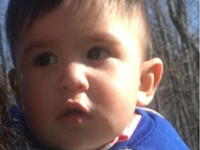[
{
"name": "500x250 Ad",
"insertPoint": "5",
"component": "15667920",
"parentWrapperClass": "",
"requiredCountToDisplay": "1"
}
]
Jamie Manson's efforts to bring about a more inclusive Catholic Church, one that includes women priests and same-sex marriage, have not endeared her to the church's hierarchy.
But she said that she remains committed to Catholicism and of what she called Catholics' "sacramental" view of the world.
"In the Catholic imagination, every experience we have, every person we encounter is capable of revealing God to us," she said. "One of my messages is to take a look at where we find sacramental realities in our day to day lives."
Manson received her master's degree from Yale Divinity School and writes a weekly column, "Grace on the Margins," for the National Catholic Reporter newspaper and website. She will give a lecture, "Envisioning an Inclusive Church," at Nazareth College at 7 p.m. on Thursday, October 16, as part of the William H. Shannon Lecture Series.
During a recent interview, Mason said that Catholics are not as conservative as they are often portrayed. And she said that she's concerned by the media's rock star treatment of Pope Francis. The following is an edited version of that discussion.
CITY: Your lecture is titled "Envisioning an Inclusive Church." What is your definition of inclusiveness?
Manson: My vision of an inclusive church has to include women priests, and honoring the fact that we can't say who God calls and does not call to the priesthood.
It includes LGBT people by honoring their relationships with the same holiness, faithfulness, and importance as straight couples'. Even beyond that, we talk about serving the poor and the marginalized, but we need to bring them into our communities.
Some faith communities do ordain women and support marriage equality. Are Catholics too conservative for a modern world or are they misunderstood?
Catholics in the US are not that conservative. Poll after poll has shown that the majorities of Catholics believe in the ordination of women and believe in same-sex marriage.
A few years ago, when there was the controversy about contraception and the Affordable Care Act, it was revealed that 98 percent of Catholic women in this country have used contraception.
I don't think the issue is that Catholics are that conservative. The problem is that the bishops and the hierarchy get very stuck on their teachings and don't engage with people who disagree. There's a very big divide between what Catholics in the pews are thinking about these issues and what the bishops are saying.
Many people commend the church for standing on its principles in the face of an increasingly permissive society. Is the conservative stance a refuge for some people?
Providing a refuge for people is one of the roles of religion and has historically been one of the roles of the Catholic Church.
If you think about the immigrants of the late 19th and 20th centuries, the church was a refuge for people coming from other countries, feeling lost, and discriminated against. They had foreign languages and foreign customs, and the church provided them with a comforting place.
But the church isn't even willing to discuss the possibility that some teachings are not working. Then the church becomes a reactionary place — a place where people are afraid of change and afraid of progress.
There's always a need for people involved with religious leadership to have humility, a certain level of self-doubt that allows them to say, "You know my theories — my teachings are very good and they've worked for years, but they have their limits. And I need to engage with people to see how well those teachings are being lived out on a human level."
Why do you remain a Catholic?
I had a theology degree from a Catholic university, and I decided to go to Yale where there were 40 different kinds of Protestants. And when you go to a school like that, you work together, you eat together, and you learn about God together. You really get to understand the differences among Christian denominations.
And I realized that in the Catholic tradition, there's this understanding of the sacramental view of the world. We believe that God created all things and all things that God created are good, so all creation is capable of revealing God to us. In the Catholic imagination, every experience we have, every person we encounter is capable of revealing God to us.
Not all Catholics see the world that way, and not all Protestants see the world differently. But there is something in the way Catholicism has been formulated and the way in which many Catholics do ministry, that recognizes that God is in the encounter — God is very much in the world. And that's very meaningful for me.
Still, I'm a feminist. I believe in women's equality. I believe women should be ordained. I'm gay and I'm in a same-sex relationship. So I am not particularly welcome inside the church's walls.
So I've had to be very creative about how I understand what the church is, and I think there are a lot of people like me. And they're not just gay and lesbian Catholics, and not just women feminists. There's a lot of Catholics who don't feel particularly disenfranchised, but still don't feel at home in the Catholic Church because of some of these teachings.
One of my messages is recognizing that there is a church beyond the walls of the church. Jesus taught us that better than anybody. Jesus was always sharing meals with people, sometimes very marginalized and broken people.
There are two stories in the news recently that are somewhat related: We're going back to war in the Middle East, and domestic violence. In many Middle Eastern countries, religious doctrine is frequently used by men to control women. The Catholic Church certainly isn't ISIS, but is it fair to ask whether the church is also guilty of trying to control women?
I think that the church is guilty of perpetuating the idea that women are not equal to men, and are not of equal worth or value. If you look at the issue of ordination of women, in essence what the church says is the way that God designs male bodies and female bodies means that we are intended for different roles.
Unfortunately, that always ends up meaning that women are not called to lead. So women are relegated to roles that have to do with mothering, nurturing, and caretaking. And my point about women's ordination is that it's not just about making women priests; it's about lifting up women to full equality.
There are a billion Catholics in the world and the Catholic Church has a presence in almost every country. Very few institutions can say that. And if an institution such as the Catholic Church were to say that women are fully equal, fully capable of leading, fully capable of empowerment, think of what kind of message that would send to patriarchal societies all over the world.
We know very well that women and children suffer disproportionally from poverty, violence, human trafficking, sex trafficking, and a lack of basic resources. And a lot of that has to do with this notion that women are not equal.
And if you don't support women and gender equality, how can you condemn domestic violence?
That's right. There's a question there because ultimately these systems where women and men need each other and complement each other always boil down to women being subordinate to men. And that makes it really difficult to wage a strong argument against domestic violence.
You're one of the few critics of Pope Francis. What aren't the rest of us seeing, and why is he so incredibly popular?
I think that people are hungry for leadership of integrity in the Catholic Church. We are living in a time of such extreme distrust of authority, and in the Catholic Church it's justified given all that's happened with the sex abuse scandals. We're looking for somebody who really lives the Gospels' values.
Certainly, Pope Francis, through a lot of his words and a lot of the imagery, seems to be doing that. There's extraordinary footage of him embracing the poor, embracing the marginalized. And for many that looks like what we have come to know about Jesus. And that's all really important stuff.
But he'll say we need a deeper theology of women, and then he'll say that women are mothers and nurturers. He'll say things like, "Who am I to judge gay people?" But then he'll say that marriage is absolutely about one man and one woman.
I don't see him ever ordaining women or marrying a same-sex couple. And my concern has been that media coverage of Pope Francis always gives us the hopeful sound bite, but there's also a sentence that comes later that is not given to us.
Speaking of...
Latest in News
More by Tim Louis Macaluso
-

RCSD financial crisis builds
Sep 23, 2019 -

RCSD facing spending concerns
Sep 20, 2019 -

Education forum tomorrow night for downtown residents
Sep 17, 2019 - More »









